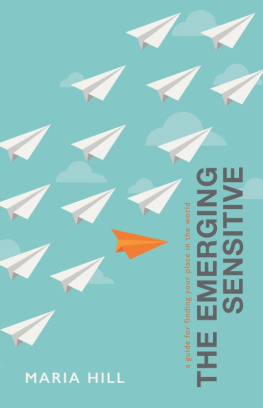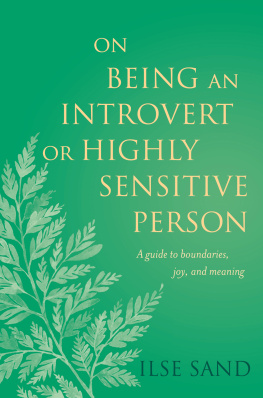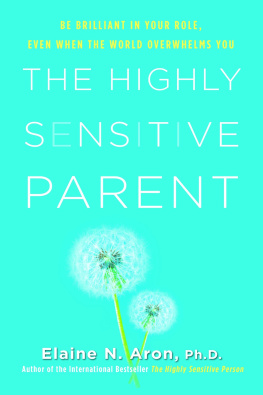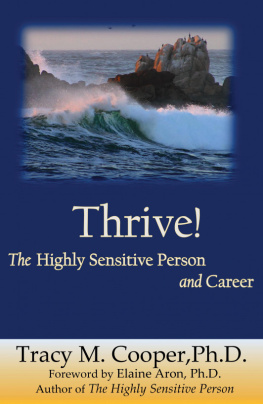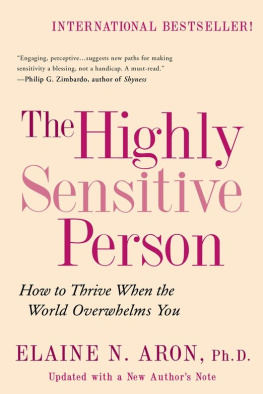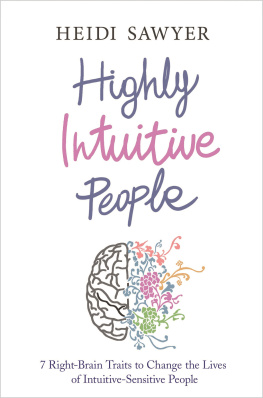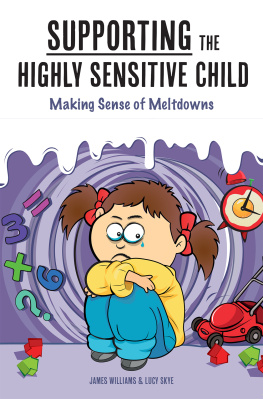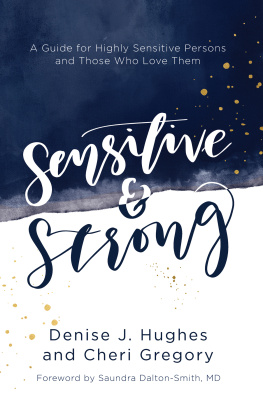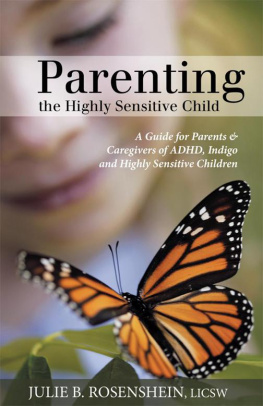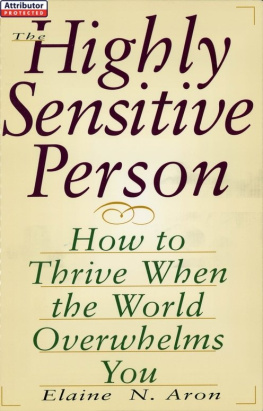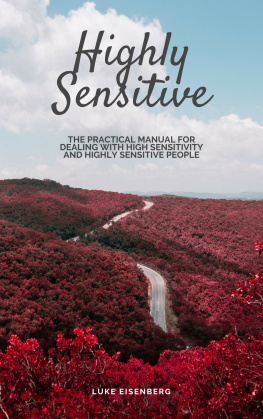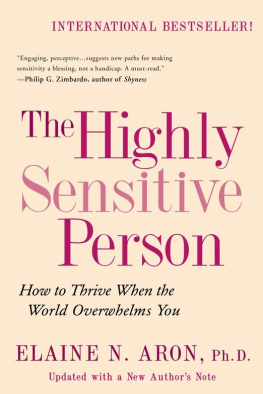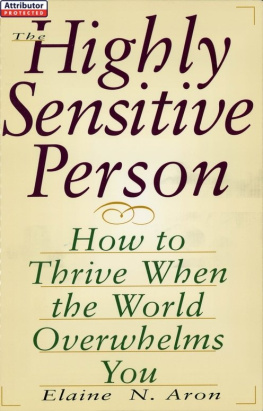Maria Hill - The Emerging Sensitive: A Guide for Finding Your Place in the World
Here you can read online Maria Hill - The Emerging Sensitive: A Guide for Finding Your Place in the World full text of the book (entire story) in english for free. Download pdf and epub, get meaning, cover and reviews about this ebook. year: 2016, publisher: BookBaby, genre: Politics. Description of the work, (preface) as well as reviews are available. Best literature library LitArk.com created for fans of good reading and offers a wide selection of genres:
Romance novel
Science fiction
Adventure
Detective
Science
History
Home and family
Prose
Art
Politics
Computer
Non-fiction
Religion
Business
Children
Humor
Choose a favorite category and find really read worthwhile books. Enjoy immersion in the world of imagination, feel the emotions of the characters or learn something new for yourself, make an fascinating discovery.
- Book:The Emerging Sensitive: A Guide for Finding Your Place in the World
- Author:
- Publisher:BookBaby
- Genre:
- Year:2016
- Rating:3 / 5
- Favourites:Add to favourites
- Your mark:
The Emerging Sensitive: A Guide for Finding Your Place in the World: summary, description and annotation
We offer to read an annotation, description, summary or preface (depends on what the author of the book "The Emerging Sensitive: A Guide for Finding Your Place in the World" wrote himself). If you haven't found the necessary information about the book — write in the comments, we will try to find it.
Having only been given a name for their unique nature a few decades ago, highly sensitive people, or HSPs, are finally able to identify their traits and connect with one another in new and beneficial ways. In her book, The Emerging Sensitive: A Guide For Finding Your Place In The World, Maria Hill illuminates the path to self-exploration and discovery for HSPs.
The Emerging Sensitive paints a vivid picture of how the sensitive experience has created a unique life journey. It illuminates the history of sensitive people by tracing the roots of HSPs back to the earliest civilizations. Using the evolutional framework of Spiral Dynamics as laid out by Don Beck and Chris Cowan The Emerging Sensitive discusses the shifting roles of highly sensitive people in societies throughout the ages and explores what the future holds as culture shifts to a more HSP-friendly stage while including ideas for moving out into the world in a safe way.
The book provides important mental supports through frameworks that HSPs need in order to navigate the world more easily. It has 4 parts and a large resources section.
Part 1: Understanding The Highly Sensitive Trait:
- How the biological difference of highly sensitive people results in a unique physically and emotional experience.
- How the DOES Model Of Highly Sensitive People created by Dr. Elaine Aron helps us understand the different ways of thinking and processing information for highly sensitive people.
- How sensitivity makes a tangible difference in the world.
- How the characteristics of sensitivity become a gift to ourselves and each other.
Part 2: The Importance And Value Of Frameworks:
- What frameworks are, why they are important and how they help us make sense of the world better.
- How the evolution framework, Spiral Dynamics, based on the research of Dr. Clare Graves, provides insights for highly sensitive people, and a tool for processing information more easily.
Part 3: Getting A Handle On The World:
- Why the structures of the world cause HSPs feel out of sync and find it hard to thrive.
- How the world is changing and why it provides fresh opportunities for highly sensitive people that will make life more fulfilling.
- Which new fields and opportunities for highly sensitive people suit their natures.
Part 4: Claiming Agency:
- What is agency and why is it hard to claim agency as a highly sensitive person.
- Which skills and tools highly sensitive people need to harness their sensitivity for positive results
- How to make changes and put the information to work.
Finally the book has a large resources section covering the HSP trait, frameworks, trends and opportunities, self help tools including health and stress relief.
Hope is not enough. Sensitive people need tools frameworks and viable solutions to the challenges they face. With the guidance and resources contained within this book, HSPs can begin to discover and nurture their true potential.
Maria Hill: author's other books
Who wrote The Emerging Sensitive: A Guide for Finding Your Place in the World? Find out the surname, the name of the author of the book and a list of all author's works by series.

